Cancer, COVID, card battles: how games saved my life
How has gaming helped you?

Sign up for breaking news, reviews, opinion, top tech deals, and more.
You are now subscribed
Your newsletter sign-up was successful
In case you couldn’t tell from the headline, this is going to be a fairly personal article. At more than one point while writing this piece, I stopped and thought ‘hmm, do I really want to bare my soul like this to thousands of people on the internet?’
Then I thought ‘sure, why not?’ We need to talk more about cancer as a society; it’s a looming specter that is virtually guaranteed to affect you or someone close to you at some point in your life. In the UK, the NHS judged that 1 in 2 people will develop cancer eventually. According to the CDC, almost 2 million people in the US were diagnosed with cancer in 2021 alone.
I’ll stop doomsaying now. The raw data is frightening, but it’s important to remember that many of these are eminently treatable, whether it’s an early-stage cancer that can be sent packing with a quick blast of radiotherapy or that suspicious mole that your uncle had lasered off his back.
My cancer was not one of these. I went to see a doctor in late 2019 complaining about a lump in my neck and was told it was most likely a lipoma - a hunk of harmless fatty tissue. Of course, come 2020, COVID lockdowns hit and my diagnosis process ground to a halt. It wasn’t until November that year that I received the news: a rare form of non-Hodgkins lymphoma, which had metastasized throughout my body. Widespread. Stage 4.
Dealing with this

I lost more than six stone (about 40kg) in 2020, as the cancer ate away at my body and my energy levels dipped lower and lower. In a sense, the diagnosis was a relief; I had been plagued by uncategorized aches and pains, and the paranoid uncertainty of what was happening to me was washed away by a wave of dreadful confirmation.
Luckily for me, I was otherwise young and fit, able to bear the most hardcore chemo my local oncology unit had to offer. My cancer was treatable - and we’d caught it just in the nick of time. I won’t lie; the horrible weight of the task ahead of me reduced me to tears more than once. I got a parking ticket for outstaying my welcome at the hospital because I spent almost an hour sobbing in my car on the phone with various relatives after receiving my diagnosis.
I went home and broke the news to my partner. We made more phone calls. Once plans had been made, tears had been shed, and appointments had been booked, I did what any rational person would do: I sat down at my gaming PC, and I played some Hades.
Sign up for breaking news, reviews, opinion, top tech deals, and more.
Gaming can be a crutch - but that isn’t always bad
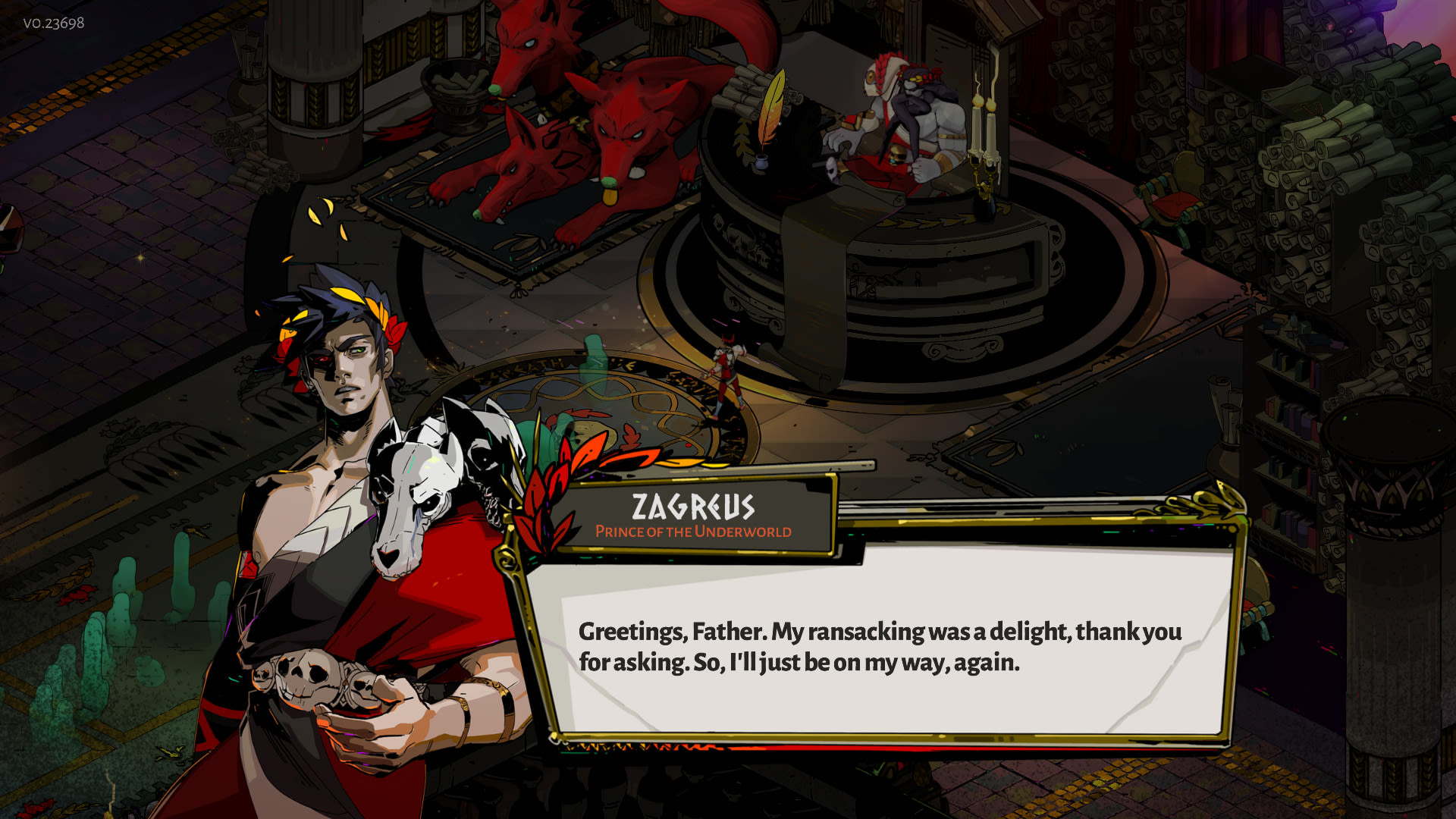
Now, I want to take a moment here to say that while games were a huge part of my cancer journey and absolutely helped to keep me sane during even the darkest hours, the real lifesavers here were the people who got me through it. My wonderful parents, my incredible fiancé, and the leagues of hardworking, compassionate healthcare staff who attended to my treatment are the real heroes of this story. They all deserve more than I can give.
But this is an article about games, so let’s talk about that. I had already been using games to dull the tedium of COVID quarantine, as I’m sure millions if not billions of people did. At the start of the first lockdown, I upgraded my gaming PC and purchased a matching Nintendo Switch for my partner so we could play Animal Crossing: New Horizons together. We spent many happy hours tucked up in bed playing games together, whiling away the time we couldn’t spend outside.
I took a leave of absence from work - at the time, I was writing for Maximum PC magazine - and spent a lot of time gaming to distract myself. Whether it was on my desktop at home, playing on my phone on the couch, or taking my Switch with me to chemotherapy sessions, I had my eyes almost perpetually glued to a screen. Games provided me with a level of distraction that TV, movies, and music could not; immersion that demands your attention.
Outside of my situation, this would’ve been cause for concern. Given the circumstances, though, we all considered it a win; better to get out of bed and play Warframe on my PC than wallow in misery under the duvet. Speaking of Warframe, the lovely folks at Digital Extremes deserve a special little shout-out for sending me a virtual care package of in-game goodies when they learned of my diagnosis. You guys rock.
If at first you don’t succeed…
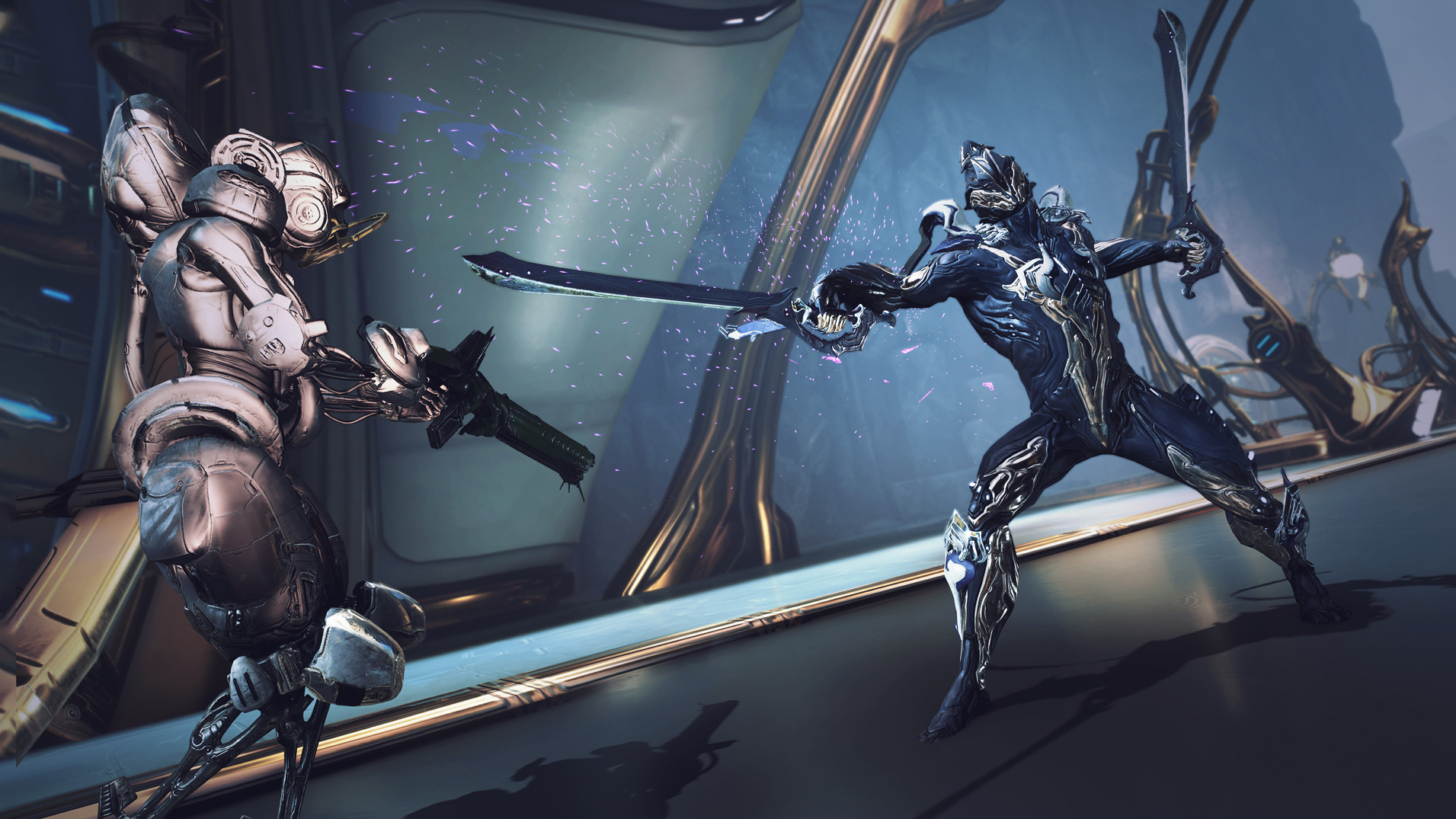
It took me a while, but it was somewhere around the second cycle of chemo treatment (I had my sessions in three-month bursts, with breaks in between) that I realized I had become enamored with a very specific genre of games: roguelikes.
If you’re not already familiar with them, roguelikes are games that hark back to the core mechanics of the 1980 ASCII dungeon-crawler Rogue, from which they take their name. Rogue was the first game to feature procedurally-generated dungeons, meaning that every playthrough would be different; where once you might find a useful item, on a second attempt you could run across a powerful enemy. When you die, you die for good and start over, carrying your knowledge of the game with you.
Roguelikes have exploded in popularity in recent years, with hits such as Hades, Returnal, and Dead Cells topping sales charts and delivering enduring appeal thanks to their never-ending nature. I’m not going to differentiate between roguelikes and roguelites here because I find the divide trivial; some claim roguelites are less pure since they allow items, upgrades, or cumulative progress to carry over between playthroughs, but I’ve always thought of it as more of an evolution of the genre.
I played a lot of roguelikes (or roguelites, whatever) throughout my cancer treatment. I mean a LOT: Hades, Enter the Gungeon, Darkest Dungeon, Dead Cells, Everspace, Loop Hero, Risk of Rain 1 and 2, Heat Signature, FTL: Faster Than Light, Griftlands, Crypt of the NecroDancer, and a somewhat unhealthy amount of Slay the Spire. Some of these games are available on iOS and Android now, so I could take my repetition obsession with me from the couch to the car to the chemo chair.
I’m going to take a brief aside here to say that if you’re a roguelike fan and there are any games on that list that you haven’t played: go play them! They’re all great! Griftlands and Hades in particular are standout hallmarks of the genre.
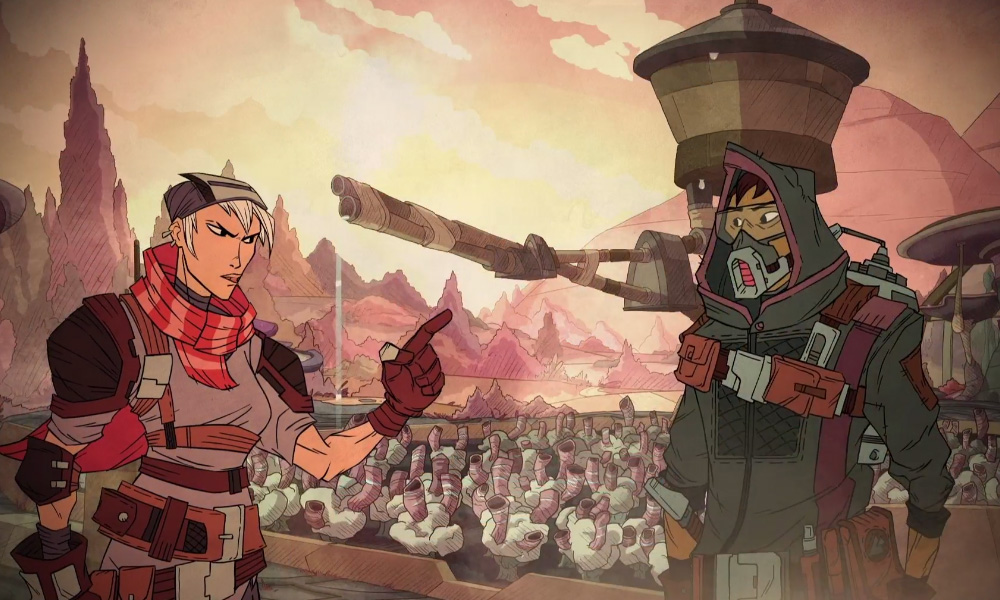
…die, die again
The secret sauce of any good roguelike is this: every run, every loop, should feel like progress. Hades is perhaps one of the greatest adherents to this tenet, with a vast amount of character dialogue that shifts every time the charming protagonist Zagreus dies and reawakens in the house of the titular Olympian. Narrative development aside, most of the games I listed above have some sort of upgrade system that sees you grow in strength between attempts, until eventually the early foes who gave you so much trouble at the start of the game can be swatted aside like flies.
That feeling of progress doesn’t have to come in the form of tangible power boosts, either. Slay the Spire’s tight card-based combat inspired (in-spire-d, heh) a slew of card-battlers in the same vein, but few manage to truly emulate what makes it great: the learning aspect. Slay the Spire is a game packed with overlapping card effects and complex interacting mechanics, and the only way to master those mechanics - and reach the top of the Spire - is to experiment and inevitably fail a lot along the way.
I saw parallels between these games and my own experiences. I was faced with a Spire of my own to Slay, except this Spire was my own body, and much like that game’s nameless heroes, I had to embark on a difficult quest to excise the evil lurking within. I had no idea what to do, or where to start; I read up on the treatments I would receive much in the same way as I pored over the StS wiki trying to work out why my latest deck strategy had fallen short.
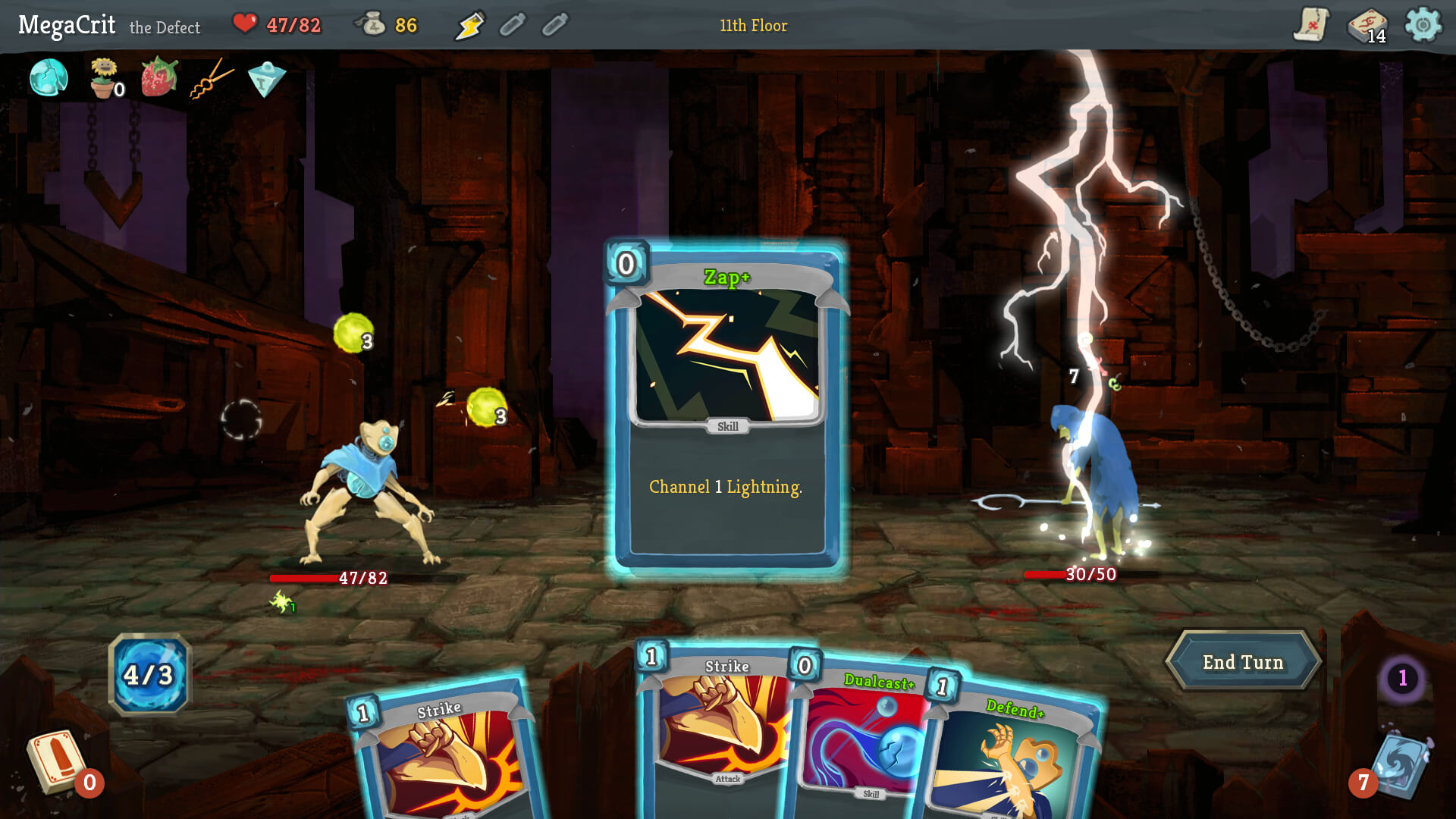
The art of repetition
Going to the hospital and enduring one seven-hour session of chemotherapy and antibody treatment didn’t cure me. But it did get me a little bit closer to being cured; every time I would come home and feel like an asbestos coatrack for days, but by the time the next session came around, I’d be ready for more.
I learned more and more about my treatment, about the science behind it, even about the lives of the nurses who pumped ruby-red drugs through the tubes in my arms. Little by little, that helped. I wasn’t just fighting my lymphoma; I was understanding it. Like Zagreus attempting endlessly to escape his godly father’s domain, I was getting closer and closer to victory, but also growing closer to the people I cared about. The strongest bonds, as they say, are forged in fire.
There is peace in repetition. Games let me turn the structureless days and weeks of my cancer-imposed quarantine into something more. I sat in an empty waiting room and emptied my phone’s battery playing games while I awaited surgery to remove that golf-ball-sized tumor from my neck. Even when I was confined to an isolated hospital room for over a month to undergo a stem cell transplant, I took my ultrabook and immersed myself in the fast-paced action of Heat Signature until my arms were too weak to reach the keyboard.
And in the end, I won.
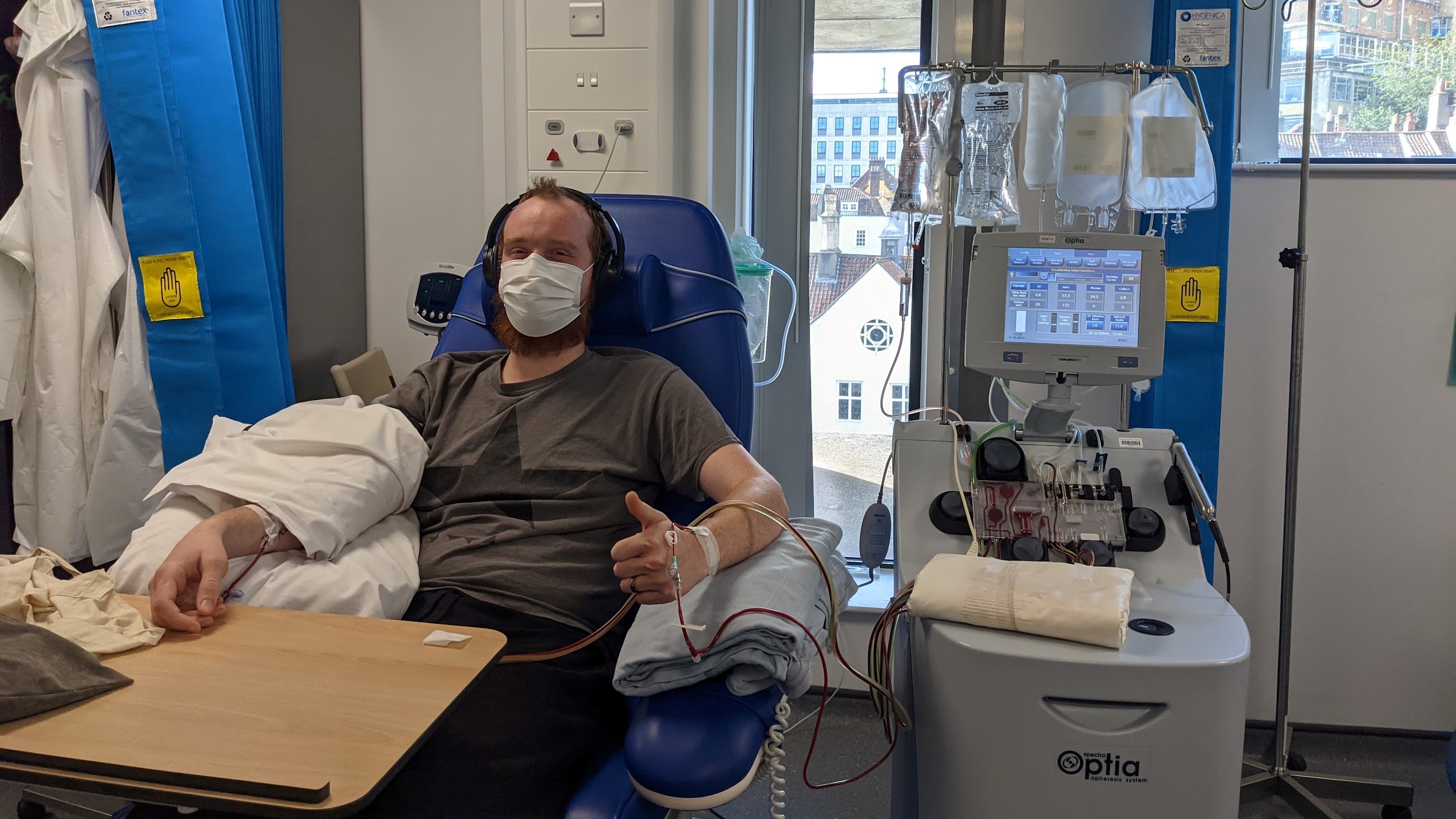
Closing the door on roguelikes?
To be absolutely clear, I did not win at Heat Signature. I got stuck on one of the challenge missions and haven't returned to the game since getting out of hospital. I did win when it came to the lymphoma, though; as of mid-2022, I’m officially cancer-free and my body has largely recovered from my time confined to a hospital bed. I came frighteningly close to not making it during that last stint on the transplant ward; intracranial bleeding and a severe infection landed me in the ICU, a night that I mercifully barely remember thanks to a combination of exhaustion and morphine.
But survive I did, and while my battle with cancer has left me both physically and mentally scarred - as it does for many - I now find myself with a renewed zest for life. Barring the odd dip back into spire-slaying on my phone, I feel I’ve moved on from roguelikes; I no longer crave the one-more-run grind, the steady march towards progress one death at a time.
My partner and I have been playing Stardew Valley on our Switches with a friend, now that I’m permitted to have house guests. On my PC, I’ve been delving into the narrative excellence of the remastered Mass Effect trilogy and A Plague Tale: Requiem, and on my phone I’ve been experiencing some slow-burn goodness with Tender: Creature Comforts and Bird Alone.
I’m not saying I’ll never play roguelikes again. My love for the genre is undiminished; when executed well, it’s the perfect cocktail of difficulty and replayability, and the use of procedural generation means that indie developers can create hugely varied worlds to fight through without needing the vast resources of a triple-A publisher. And if I ever find that my own personal Spire has returned, I know those games - and likely many more - will be waiting to welcome me back for another battle.

Christian is TechRadar’s UK-based Computing Editor. He came to us from Maximum PC magazine, where he fell in love with computer hardware and building PCs. He was a regular fixture amongst our freelance review team before making the jump to TechRadar, and can usually be found drooling over the latest high-end graphics card or gaming laptop before looking at his bank account balance and crying.
Christian is a keen campaigner for LGBTQ+ rights and the owner of a charming rescue dog named Lucy, having adopted her after he beat cancer in 2021. She keeps him fit and healthy through a combination of face-licking and long walks, and only occasionally barks at him to demand treats when he’s trying to work from home.